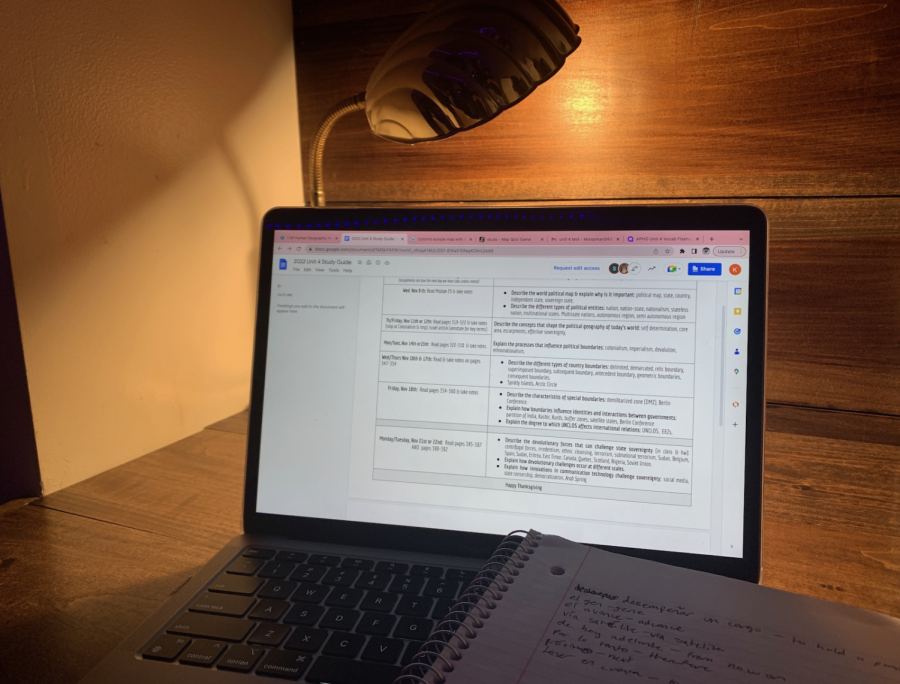Asynchronous Days Create Challenges for Students and Teachers
During Asynch days, BSM students have the flexibility to work on school work at any time of the day.
Since COVID-19 hit schools in 2020, asynchronous days have become a regular alternative to simply not having school at BSM. Asynchronous days continue to make waves two years later even though a majority of students dislike the idea of having to do extra work at home on a day that could just be given off.
Asynchronous days allow students to work and complete classwork from home. Teachers assign work for students to complete by themselves rather than during class. Usually, students are assigned video notes, projects, or worksheets on whatever they are currently focusing on in class. I prefer asynchronous days to regular days because they offer a quiet environment for me to work at my own pace as opposed to a loud classroom where it can be hard to concentrate.
Although asynchronous days have unique benefits and are preferable to regular days when necessary, they still create issues for students and teachers.On days where teachers have conferences or teacher learning days, BSM prefers asynchronous days instead of a day off. Often teachers are tasked with double duty, work overload, and a lack of face to face instruction to help students. These all can be significant downsides of asynchronous days.
Unfortunately, this means teachers also have to also create a learning plan for asynchronous days while also attending professional development. This can create stress for teachers and interfere with lesson planning. This is concerning because at public schools, teacher unions would not allow for this double duty that teachers here at BSM have to deal with. This is detrimental to teachers because it causes stress, and overworked teachers, which eventually causes problems within the school.
Additionally, snow days are becoming extinct. This year, BSM is likely to call an asynchronous day instead of having a day off. Personally, I believe that nobody would want to have to work at home on a snow day, and it could be beneficial to have it be a ‘catch up day’ instead of assigning new work so kids can de-stress and enjoy the time off.
Having a day off may throw a wrench in teachers’ plans, but it supports teens’ mental health and allows them to enjoy an unexpected break. Oftentimes, these unexpected days off become the days that you create the best memories, such as going sledding, skiing, or just having friends over. Especially when approaching the holiday season this time is even more important. Similarly, teachers will also get the day off to spend with family and friends.
Ultimately, having asynchronous days just creates more busy work and assignments for students and often becomes a struggle for teachers to plan and help students with. If BSM were to give the day off on these professional development days or snow days, students’ mental health and teachers’ stress levels could improve.






































![Teacher Lore: Mr. Hillman [Podcast]](https://bsmknighterrant.org/wp-content/uploads/2025/03/teacherlorelogo-1200x685.png)




